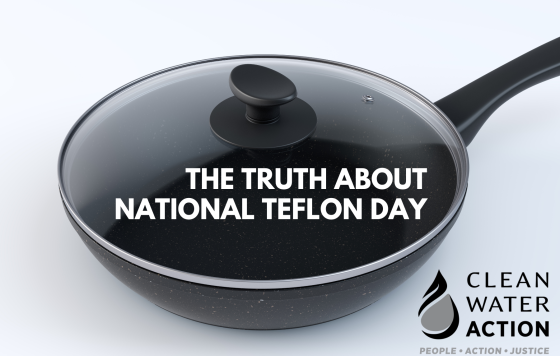
It was a dark, cold January day, shortly after Michigan officials had finally admitted that the people of Flint had been exposed to poisoned water running through their taps. We drove from Lansing to St Michael’s Church in Flint for an organizing meeting. Local activists, people from the non-profit community, and even experts who had run door-to-door canvasses in response to Hurricane Sandy, were all there to do something about the water crisis that is still being ignored by our state government.
It is hard for me to write about what happened in Flint. The most important voices of this tragedy are those that have for so long gone unheard; the voices of those who have the least access in our society and always seem to be the first impacted by things like the Flint water crisis. I don’t live there and my daughter wasn’t exposed to lead poisoning. But I have listened to people who live there and heard their stories. I’ve canvassed neighborhoods with Flint Rising and have seen some of the effects. Every door you knock on in Flint seems to be opened by a person standing in front of a mountain of bottled water. It’s not just for drinking. It’s for bathing, washing dishes, washing clothes, cooking, and all the other things that the rest of us do in our homes without thinking twice.
Some people I’ve met in Flint don’t have bottled water. I’ve met seniors who insisted that bottled water should go to younger people and have persisted in drinking the poisoned tap water. I met a young pregnant mother, home with children, without reliable transportation, who had to ride busses to the firehouse where bottled water is distributed, with three little kids in tow, to carry as much water as she could back home. She made this trek multiple times a day in the dead of winter. People in Flint have been living with poisoned water for longer than two years. Many still get skin rashes and have hair falling out from exposure to the water. Nobody has a clear picture yet on how many children have been poisoned.
As of this post, 238 days have passed since Governor Snyder first acknowledged that the people of Flint are living with poisoned water. 238 days, and the state has done nothing to solve this problem, or mitigate this disaster. The State of Michigan is responsible for the Flint water crisis. They’ve tried blaming local government, but Flint was under the control of a state appointed emergency manager. Snyder also tried to blame the Environmental Protection Agency, and though the EPA should have forced the state to act sooner, it was an emergency manager who gave the order, and state DEQ officials who failed to enforce Safe Drinking Water Act standards.
Clean Water Action has been talking to our members across the state about the Flint crisis for months. Our field canvass organizers went out through the dead of winter and into the spring, gathering more than 5,500 letters from Clean Water Action members in 44 State House districts calling on their representatives to fund replacing the lead service lines in the city of Flint. Our phone canvass organizers called our members, and more than 1,500 members emailed their representatives in 85 out of 110 state house districts in Michigan. In Flint, local activists came together and kept the pressure on, leading the fight for the restoration of clean water to their city.
Last week, we had the opportunity to partner with Flint community activists to deliver constituent letters from Clean Water Action members across the state with a clear and resounding message, that the people of Michigan stand with Flint. That it is a moral obligation to restore clean drinking water regardless of the cost. That even if their constituents weren’t directly impacted, we will still hold our lawmakers accountable.
Sadly I was not surprised to hear the State House may not vote for emergency funds until after summer recess this September. Or they may vote before summer break begins on June 16th, but that passing emergency funds for Flint will be difficult and require ‘significant compromise.’ I think back to the people in Flint and wonder what this delay and lack of funding will mean to the families there.
We must stay engaged in this struggle until the people of Flint have the basic dignity of clean water flowing from their taps. Contact your representative today, and demand that they pass emergency funding for Flint- it’s been too long already.



